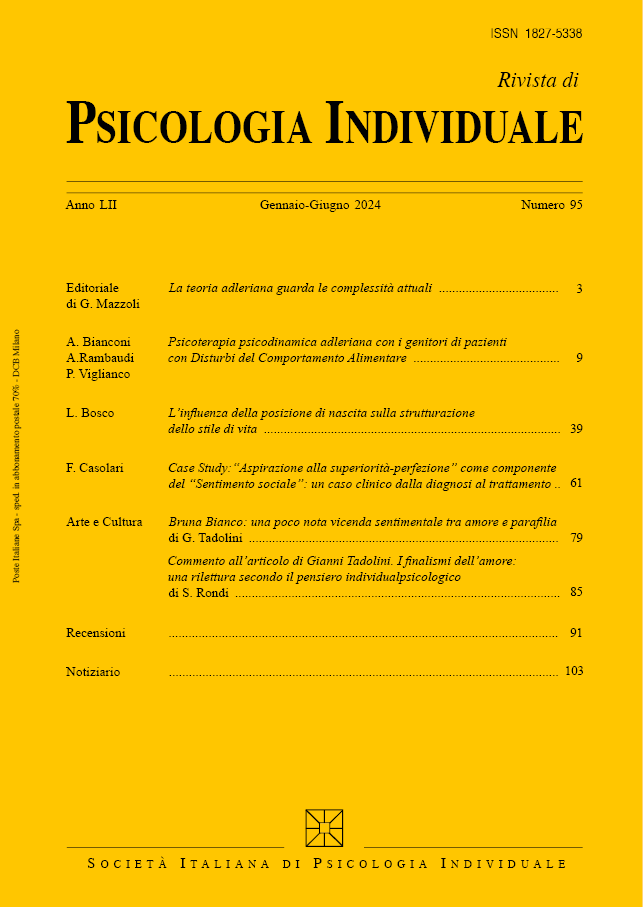THE RESISTANCE TO TREATMENT IN ANOREXIA NERVOSA: HAS THE ADLERIAN PSYCHODYNAMIC PSYCHOTHERAPY A SPECIFIC INDICATION?
Keywords:
resistance to treatment, eating disorders, attachment, psychodinamic psychotherapy, resistenza al trattamento, disordini alimentari, attaccamento, psicoterapia psicodinamicaAbstract
Anorexia Nervosa (AN) is a serious disease difficult to treat and resistant to treatment. To date, evidence is lacking that the treatment modifies the outcome. A review of studies on resistance in AN highlights four main themes: denial of illness versus insight and motivation to change, maintenance factors, management of treatment resistance and treatment outcome, the therapeutic relationship and countertransference. In the treatment there is too much emphasis on cognitive and explicit factors, while the problem may lie in a failure to authentic encounter between patient and therapist. After the examination of research on family dynamics and personality of AN patients they are considered recent studies on the attachment style in AN, and the psychodynamic model.Thus there is a need to redefine the role of the therapist in the dynamic psychotherapy of AN. Recent studies on the attachment style in AN support a psychodynamic model of pathogenesis and treatment which considers the AN as a disease caused by an abnormal development of the self. To live without eating, and sometimes rather die are grandiose compensations for severe feelings of unworthiness and rooted discouragement, as proposed two decades ago by H. Bruch. It is necessary to redefine the role of the therapist in the psychodynamic psychotherapy of anorexia nervosa, that considers the lifestyle of the therapist and the patient. The Reference to a network model consisting of psychiatrists, psychotherapists and nutritionists is indispensable. As the process of encouraging is the heart of change, phenomena as embodied simulation, intentional attunement, meeting moments, implicit communication, which have been conceptualized with reference to recent neurobiological findings and brain imaging, help to validate the empathic understanding as the core of the process of encouragement. The early experiences are repeated in the transference reaction, and affect emotional contagion and contamination, countertransference and meta countertransference in the therapist, including the risks of excessive zeal and discouragement. The Adlerian Psychodynamic Psychotherapy, whose structure, theory and technique is always been the strategy of encouragement, even in the light of evidence-based reports, it seems particularly predisposed to the treatment of this severe disease of youth, enigmatic expression of post-modern cultures
Downloads
Published
2014-12-31
Issue
Section
Sections






